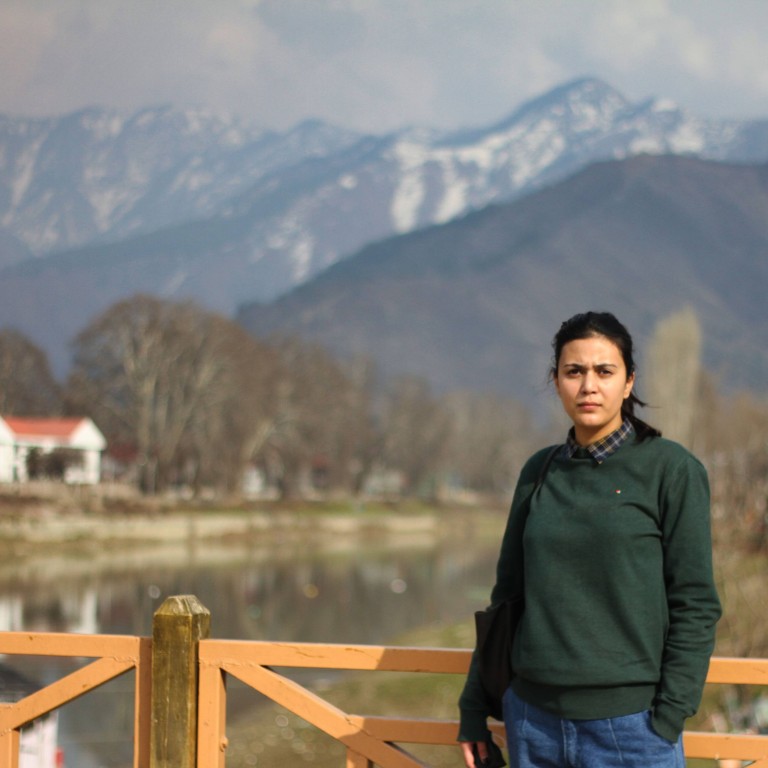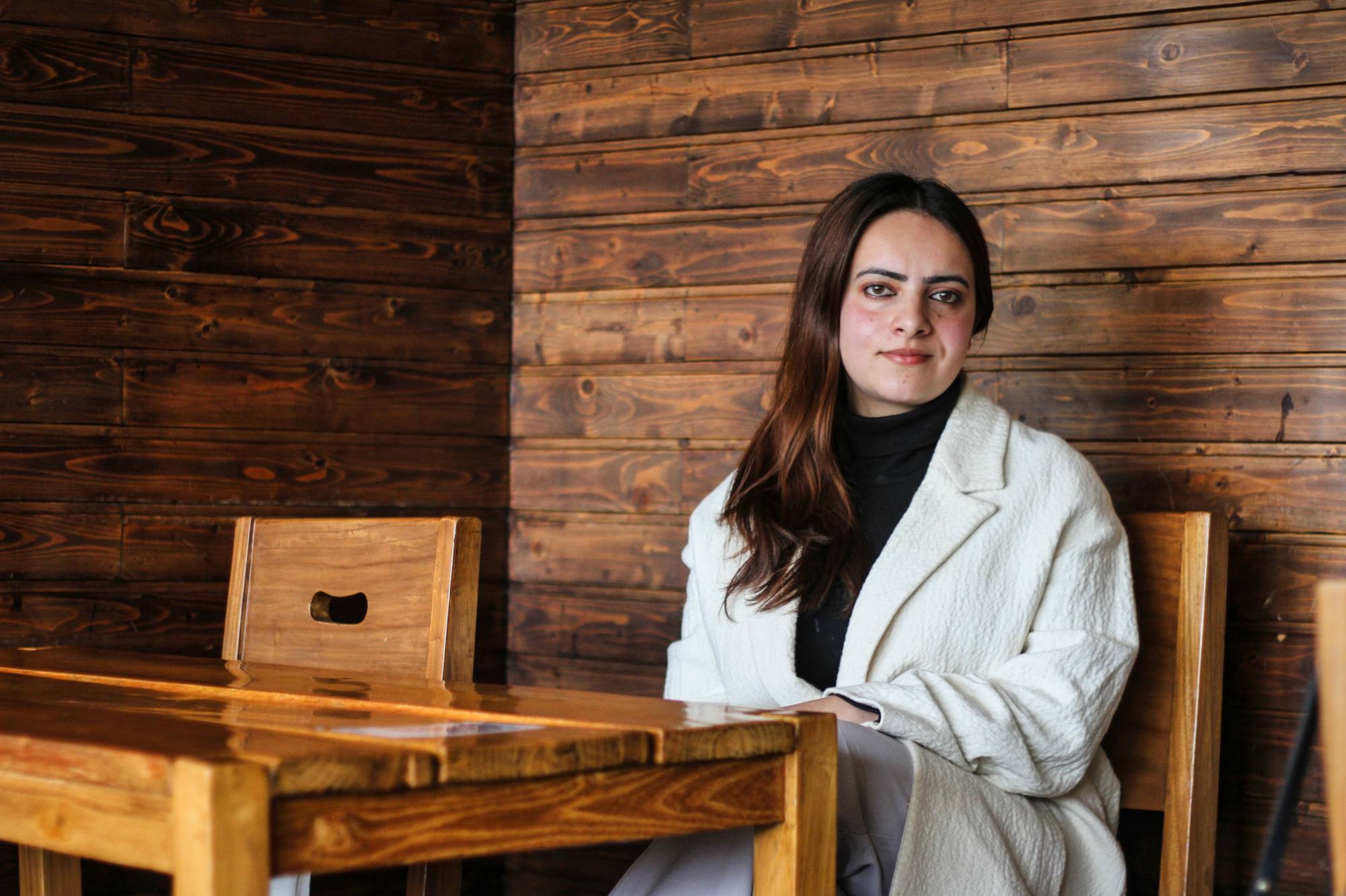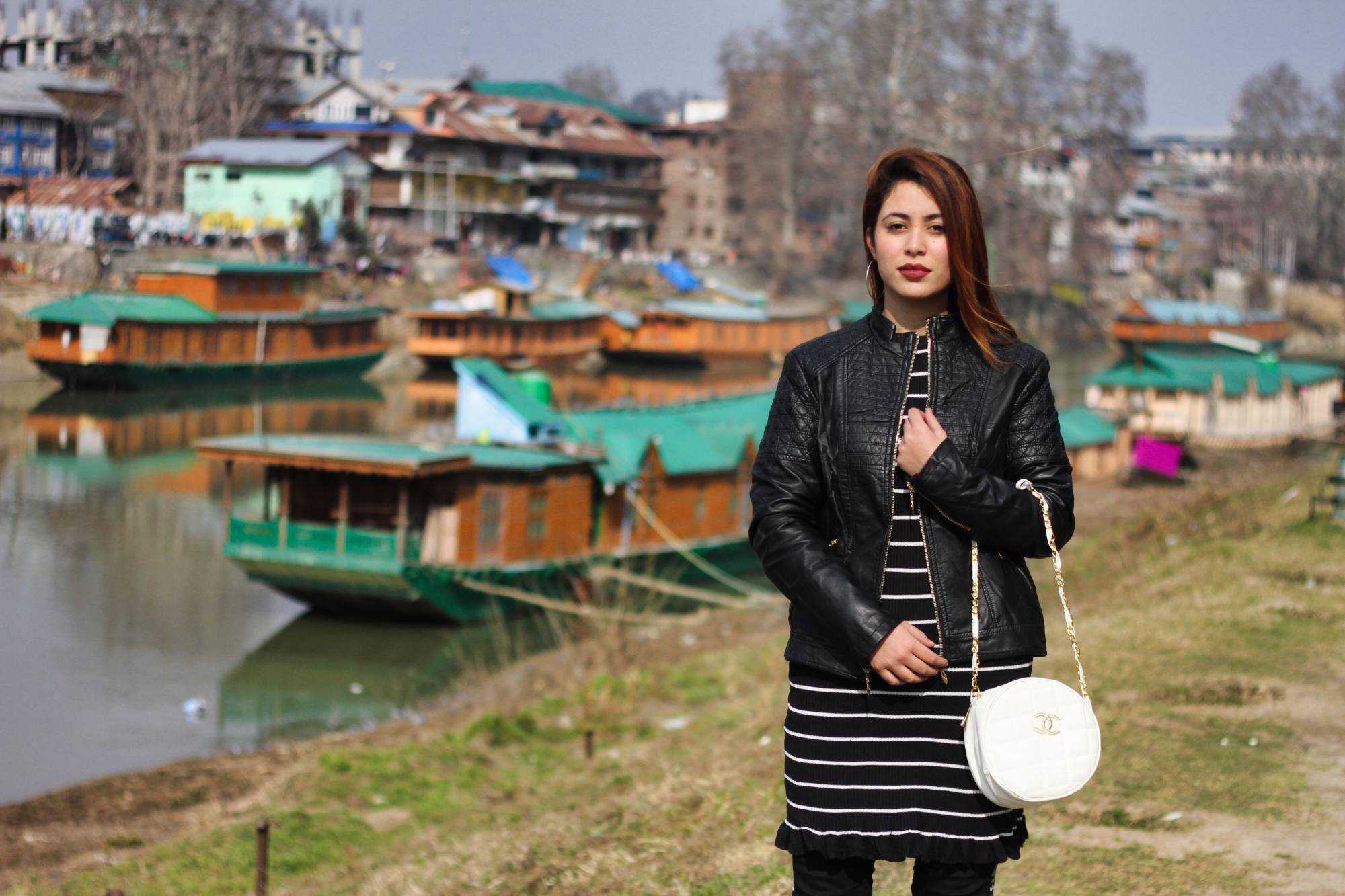
‘What we’re doing is not evil’: meet the Instagram models of Kashmir
- Mired in conflict, the scene of a decades-long insurgency and deeply religious and conservative, the Kashmir valley is not obviously fertile ground for internet influencers
- Yet against the odds – and usually against their family’s wishes too – some women are using the social network to pursue their modelling careers, come what may
These women come from a variety of backgrounds and classes, some are students and some are businesswomen. All are bent on making it big in life.
Among them is Mehwish Siddiqui, 27, an engineering graduate, who prefers to be known as a “fashion entrepreneur, rather than a fashion model”.
Siddiqui has been running one of the most well-known bridal brands in the valley for more than half a decade now. She began modelling her own clothes for the simple reason that at the time she could not find any models.

“No women in Kashmir were ready for this, and to get someone from mainland India to model for us would have been a costly affair,” Siddiqui said. “So I decided to model for my own brand and have stuck to it ever since.”
She now has a following of more than 15,000 people on her Instagram accounts, a substantial number by local standards.
Women like Siddiqui have also inspired a younger crowd. Muskan Akhoon, 18, is among them. She got into modelling initially to earn a quick buck. Now she is one of the most sought-after Instagram models in Kashmir.
She had originally need to make money for her family after her father was conned by his business partner and fell sick, unable to work.
I am glad I have been able to help sustain my family, while also funding my education
Even by the time she had amassed more than 40,000 followers on TikTok, she still had no idea the platform could be monetised. “And then the platform was banned in India, but not before I had been spotted by a clothing brand and offered work. It was a photo shoot,” she said.
Muskan now earns anything between US$300 and US$400 a month. One shoot might fetch her anything from US$20 to US$50. But there are cases of exploitation where the women do not receive any payment.
“I am glad I have been able to help sustain my family, while also funding my education,” said Muskan, whose earnings have enabled her to pursue a bachelor’s degree in arts at a government-run college in Srinagar.
Yet there are many downsides lurking beneath the surface, and some stem from the home.

‘A disgrace to the family’
“It is hard to make our parents realise that what we are doing out there is not evil, even if that’s how it’s portrayed by society,” said Shalla Munazza, 21, a law student at the University of Kashmir.
Munazza started out by hosting events in and around Srinagar, and her parents were furious. A few years back when she insisted on anchoring one such event, her father slapped her and she was grounded.
“I did not stop though. I kept looking for work and finally landed a gig in a music video that gave me the recognition I needed,” she said. She has recently modelled for a London-based clothing brand and says her parents have come to terms with her choices. “I assume they are proud of me now.”
Kashmir, however, is a closely knit society and life revolves around the extended family. In this society, tongues wag.
Muskan said she faced much anger from her relatives for her modelling. “I am told that my male cousins are not able to find a [marriage] match because I am bringing disgrace to the family,” Muskan said. She is unfazed though.
The women also face online abuse, trolling and sometimes even threats. Many of the perpetrators cite religion as the reason for naming and shaming the women.
“Go to the comment section of these Instagram accounts and you might faint. The kind of abuse they get is frightening,” a Srinagar-based woman journalist said. “I don’t know whether these young women are plain foolish or brave to continue doing what they do and are targeted for.”
Another model, Aksa Khan, 21, said she saw the online hate as nothing more than the trolling every modern celebrity had to put up with.
“The best way is to ignore it and move forward. My mother supports me and that is enough for me,” Khan said. She has modelled for many clothing and make-up brands and has recently shot a commercial for a hotel in Gulmarg, a famous winter sports destination in Kashmir.
But things can sometimes get serious. Siddiqui was once threatened by a man claiming to belong to a militant group who had contacted her in a direct message online.
Religiously motivated militants in Kashmir have often threatened women deemed not to be adhering to the Islamic dress code or lifestyle. Sometimes the threats are written on posters plastered across public places, particularly in rural areas. However, a security official said it was unusual for militants to be able to “get into the inboxes of people and threaten then” as authorities had worked hard to track them recently.
Siddique refused to be intimidated. “I deleted the message, blocked the person, and put it behind my back. I am not afraid of dying,” Siddiqui said.
Some men feel they can [make advances] because if a woman decides to model, she might be available for other things as well
Exploitation
Beyond the social opprobrium and threats, the Instagram models of Kashmir must also contend with predators – both in the form of lecherous men and exploitative employers.
Many face unwanted advances from men at work and many can recount instances when they were not paid for their work.
“Some men feel they can [make advances] because if a woman decides to model, she might be available for other things as well,” Munazza said.
Phone calls at odd hours, out of line texts and physical advances are common, the women say.
But, as Muskan pointed out, at least lecherous men can be warded off. Not so exploitative employers.
“The culture of not paying you is something that breaks your back,” Muskan said, adding that it was common for models to be made to work through the day without food, heat or even a place to sit – and then to find at the end of the shoot that their employer was withholding their money.
Often, a spurious excuse is given. Women are told the pictures or the videos are not good enough.
“Or they are provided just the photos as payment. The irony is some of the young girls fall for it, they are happy just posting good quality pictures over their social media accounts,” she said.
One employer, a woman who runs one of the biggest ethnic clothing brands in Kashmir, admitted as much, but claimed that many of the younger women were happy to work for free in return for the exposure.
“They just want the name of the brand. And once we post their pictures on our Instagram feed, they get instant social media fame, followers. Then they start charging the lesser known brands,” said the woman.
Still, determined women like Munazza and Siddiqui do not let such obstacles get in their way. Their focus is now on how to move forwards, and are planning to create a professional association that could help to address the problems of this fledgling industry.


